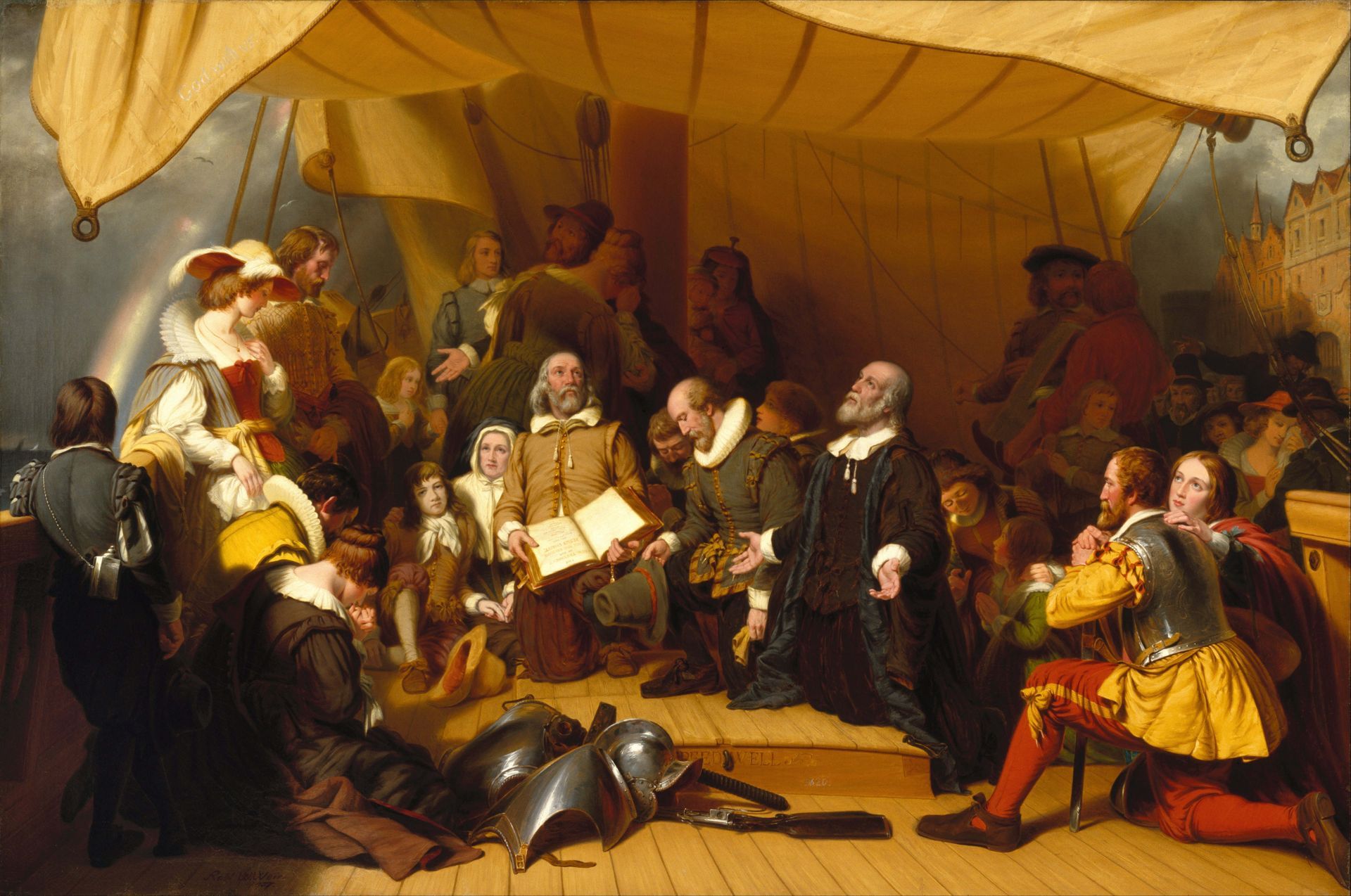Part 3: 400 Years of Bible-Based Liberty
Problems for Plymouth colony came with the surprise arrival of the Fortune in November of 1621. 37 settlers arrived, including separatists like the pilgrims and settlers from the Merchant Adventurers. The contract from the Merchant Adventurers stated that no individual could own a plot of land for the first seven years. Rather, each year the land plots were rotated amongst the families. All produce and goods would then be distributed evenly amongst all colonists.
From the very beginning socialism (referred to as communalism by Bradford) was trying to infiltrate America. It was soon realized that there would not be enough food to last the winter.
Governor Bradford said the answer was in the Bible as they chose to operate by the Scriptural teaching of 2 Thessalonians 3:10, “… that if any would not work, neither should he eat ” and 1 Timothy 5:8, “ But if any provide not for his own, and specially for those of his own house, he hath denied the faith, and is worse than an infidel. ”
Governor Bradford wrote, “So they began to think how they might raise as much corn as they could, and obtain a better crop than they had done, that they might not still thus languish in misery. At length, after much debate of things, the Governor (with the advise of the chiefest amongst them) gave way that they should set corn every man for his own particular, and in that regard trust to themselves; in all other things to go on in the general way as before. And so assigned to every family a parcel of land, according to the proportion of their number for that end, only for present use, and ranged all boys & youth under some family. This had very good success; for it made all hands very industrious, so as much more corn was planted then otherwise would have been”.
The free-market/capitalism approach saw incredible success. Contrasting this to the communal system, Bradford wrote, “For this community (so far as it was) was found to breed much confusion & discontent, and retard much employment that would have been to their benefit and comfort. For the young-men that were most able and fit for labor & service did repine that they should spend their time & strength to work for other men’s wives and children, without any recompence”.
Once they had rid themselves of this “commune” system where all produce and supplies were brought to the communal store and distributed evenly, despite how much or how little one had worked, the colony flourished through a free-enterprise system. They would go on to establish new settlements, become a launching point and training center for new colonies, and all the while remain steadfast upon the Word of God. Brandford wrote, “From these extremities the Lord in his goodness kept these his people, and in their great wants preserved both their lives and health; let his name have the praise.”
It was then in 1623 that everything was looking great, when from the third week of May to the middle of July there was no rain and the corn began to wither. The colony came together for a day of fasting and prayer. Bradford noted that there was not a cloud in the sky all day.
But that night, after their full day of prayer and fasting, “…it began to overcast, and shortly after to rain, with such sweet and gentle showers, as gave them cause of rejoicing, & blessing God. It came, without either wind, or thunder, or any violence, and by degrees in that abundance, as that the earth was thoroughly wet and soaked therewith. Which did so apparently revive & quicken the decayed corn & other fruits, as was wonderful to see, and made the Indians astonished to behold; and afterwards the Lord sent them such seasonable showers, with interchange of faire warm weather, as, through his blessing, caused a fruitful & liberal harvest, to their no small comfort and rejoicing. For which mercy they also set apart a day of thanksgiving.”

by Jennie A. Brownscombe, 1914
And that’s how this nation was founded – upon God’s Word with full faith in and dependence upon Him, giving Him all the praise and honor, including a special day of Thanksgiving unto God.
The American founding is one of absolute devotion to God and His Word, the pursuit of religious freedom, adherence to Christian principles and morals, equality for all people, the rejection of socialism, the overwhelming success of capitalism, and divine intervention in the establishment of this nation.
We understand then that one may advocate political change in a free country, but that anything contrary to the values of religious freedom, capitalism and hard work, and Christian principles is by definition not American.
We often pray for revival in America to turn back to God and to her Godly roots – her American founding. But understand that it does not start in the state house or even the church house.
I suggest it will not start until the fathers of Christian homes stand up and say we will live by traditional American values, which are Biblical, Godly values. They are values that teach the next generation that hard work is a virtue, that solemn devotion to God, the Lord’s Day, and to His Word are vital, and Christian morals are never to be compromised. They are values that cherish Christ and serving Him above all.
Will there ever be revival in the land? Only if there is revival in our homes.



